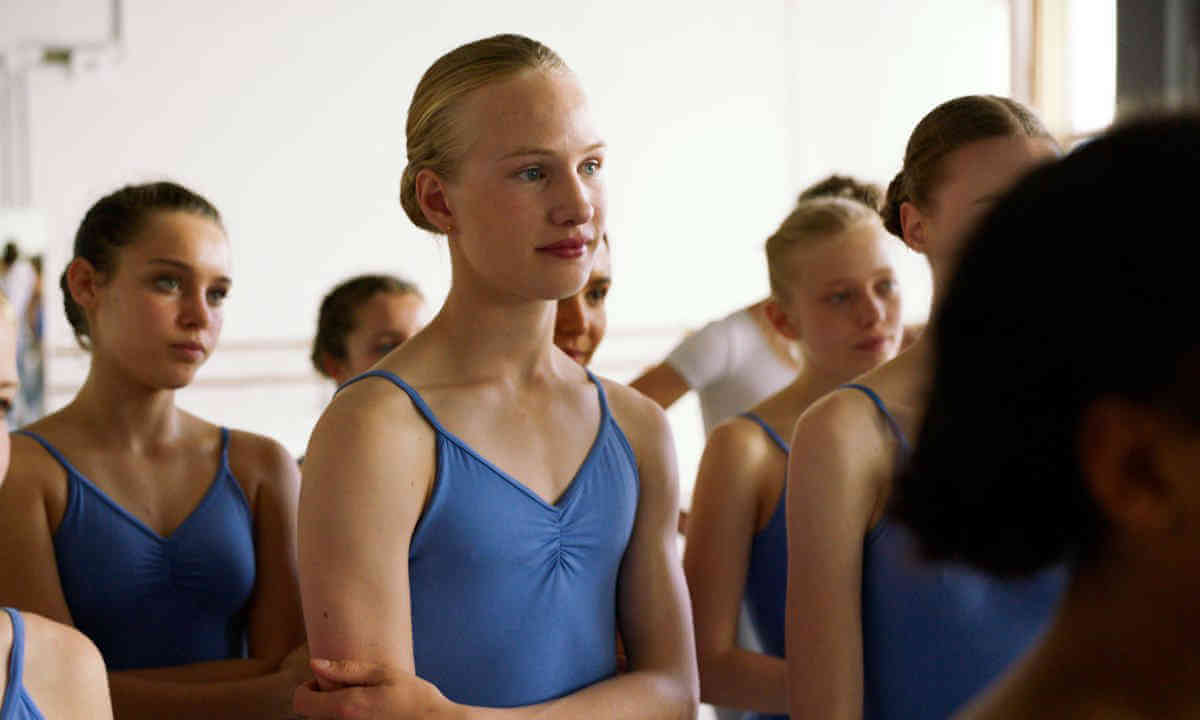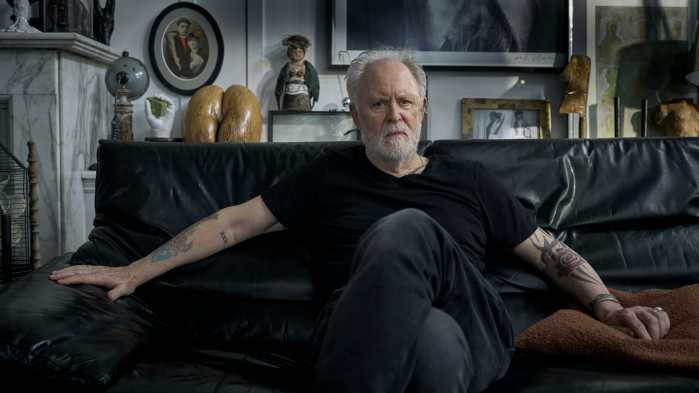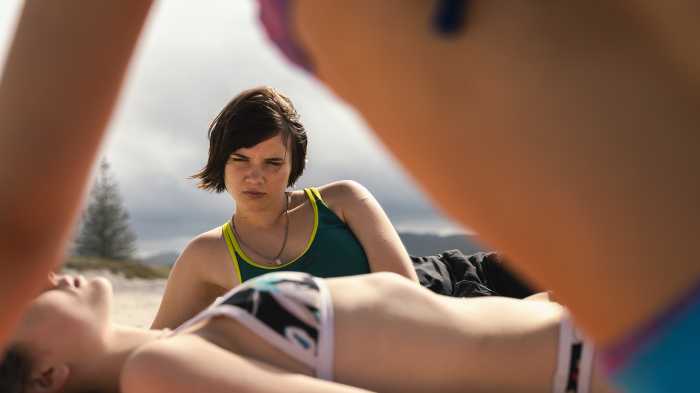The Belgian drama “Girl,” directed by out gay Flemish filmmaker Lukas Dhont, is a character study depicting the true story of Lara (Victor Polster), a 15-year-old born biologically as a boy who wants to be a ballerina. The film won the International Federation of Film Critics Prize and, at the Cannes Film Festival, the Camera d’Or for best first film, the Queer Palm, and a Best Actor prize for Polster. The film was Belgium’s submission for the Oscars in the Best Foreign Film category (it failed to be shortlisted) and was nominated for a Golden Globe in that category.
Despite these accolades, “Girl” has become the subject of intense criticism from the trans community. The casting of cisgender male Polster has been part of the debate, as has a “metaphorical” act of self-harm at a crucial dramatic moment toward the film’s end. In interviews, Dhont defended the casting of Polster, explaining that he looked at cisgender teen girls and boys as well as trans performers, choosing Polster because he was a ballet dancer who could act. Nora Monsecour, the real-life inspiration for the film, approved of Lara’s portrayal, calling it “accurate” in news articles.
So, the question is raised: with the praise from the film festival circuit and the backlash from the trans community, is “Girl” worth seeing?
The film is a sensitive story, but it is told in a heavy-handed style.
Lara’s struggle with her body is the focus of the film, and there are dozens of scenes of her examining her body, damaging her body, and wishing her body were different. An early scene features Lara’s father, Mathias (Arieh Worthalter), walking in on Lara piercing her ear — a symbolic act of change. Lara meets with a director of a ballet academy, who admires her confidence but worries about the strength of her bones given the puberty inhibitors she is taking. Lara also meets with her doctors about transitioning and she says is counting down the days of her treatment and looks forward to having breasts.
These scenes, in essence, provide status updates on Lara’s body. We also see her, however, damaging her body — from taping her genitals, to injuring her feet dancing, to wanting to double her hormones to speed her transition.
“Girl” presents Lara’s mindset as fragile, as well. She claims she doesn’t “feel female,” but her father explains, genuinely, that when he looks at her he sees a woman. Lara smiles when her younger brother’s teacher acknowledges her as his sister, demonstrating her satisfaction at being able to “pass” as female. But there are also episodes that call attention to Lara being transgender, such as a teacher in a classroom asking the female students for a show of hands to determine if there are any objections to Lara changing in the girls’ locker room.
Dhont seems to be so careful, so deliberate in setting up these scenes that each one feels like a big clunky signifier for the drama to come. An obvious example has a ballet instructor telling Lara, who is struggling with pliés, “Some things can’t be changed; you can’t lop bits of your feet off.” There are also scenes of a teenage girl berating Lara in the locker room for not showering and asking if she should be seen as a boy or a girl. She insists that Lara show her penis, given that she has seen all of them naked. Such a scene of humiliation, while perhaps realistic, seems forced or perhaps obligatory.
Lara also has setbacks with both her ballet and her transitioning as her body shows signs of damage from her dancing and her taping. She becomes too weak to perform or to have the surgery she plans on until enough healing takes place.
“Girl” uses these episodes to depict Lara’s difficulties, but she is, the film suggests, her own worst enemy, especially when she engages in dangerous behavior. In her impatience to complete her transition — which is an understandable emotion — Lara makes bad decisions. These moments point up what is most frustrating about the film. Yes, Lara is a teenager experiencing all the stresses of puberty, on top of both a rigorous dance education and her transitioning, but her self-willed behavior in the face of the tremendous support she receives makes her unlikeable. Dhont and Polster clearly aim to explore Lara’s internal and physical struggles, but viewers may just feel frustrated with her. Lara becomes difficult to care about, which is what the film is asking viewers to do.
The best thing about “Girl” is Lara’s father, Mathias, who could not be more supportive and understanding. He asks the right questions at the doctor’s office and tries to talk openly and honestly with Lara about her emotions and sexual desires. He champions her bravery, telling her that she is setting an example for others. And he sincerely worries about her physical and mental well-being, even calling her out on her bullshit when Lara lies about a stomach pain or says she’s “fine” when she clearly isn’t. “Girl” could have been interesting — though a very different film — had it told Lara’s story of transitioning from Mathias’ point of view.
But because Dhont focuses on Lara, the film plays up the drama of her life — and not all of that works. Lara’s attraction to her neighbor, Lewis (Tijmen Govaerts), prompts her to contrive excuses to visit him. On one occasion, she kisses him, but keeps him from touching her breasts and genitals, instead giving him a blow job. Given Lara’s caginess with her father and her therapist about her sexual desires and inexperience, this scene suggests that Lara is interested in Lewis simply because he does not know about her transgender status. Disappointingly, though, this possibility is never fully explored.
“Girl” also becomes problematic as the film climaxes in a scene designed to shock involving a moment of Lara’s self-harm that justly angered the trans community.
Dhont aims to provide a compassionate portrait of Lara, and Polster gives a committed performance in the title role. Unfortunately, despite its noble intentions, “Girl” disappoints because of the gap between what it tries to do right and what it actually delivers.
GIRL | Directed by Lukas Dhont | In French and Flemish with English subtitles | Premieres Mar. 15 on Netflix



































